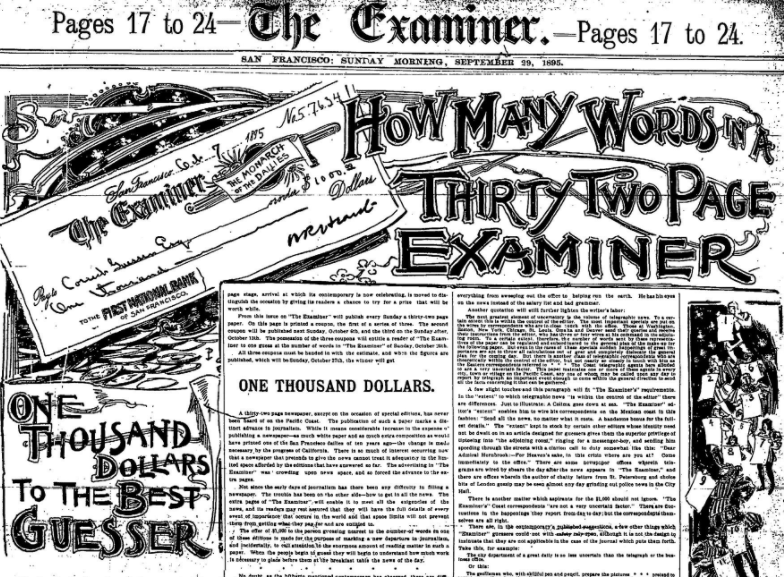By Jasmine Bala for the Ryerson Journalism Research Centre
Building audience engagement has long been a newsroom preoccupation, only today it involves Instagram and Facebook, while in the past publishers seduced readers with paper cut-out toys and thrilling accounts of reporters on around-the-world races against time.
New research on the history of Sunday newspapers by Paul Moore, an associate professor in Ryerson University’s sociology department, examines one of the greatest audience engagement gimmicks of all time: The New York World’s decision to send reporter Nellie Bly travelling around the globe. Bly was assigned to beat the fictional record described in the Jules Verne novel “Around the World in Eighty Days.” She completed the trip in 72 days.
“There was, of course, a guessing contest for readers to be more personally invested in The World’s regular reports of Bly’s travels,” Moore and Concordia University professor Sandra Gabriele write in their forthcoming book, The Sunday Paper.
They examine Bly’s exploits as part of their research on the history and role of weekend newspapers in mass consumer society between 1888 and 1922 in North America. The research, funded by the Social Sciences and Humanities Research Council of Canada, will be published by the University of Illinois Press as part of a larger series, The History of Communication.
The 1890s was a period of innovation and experimentation as publishers tried to attract audiences and teach people “how to read the newspaper when it was a new object – a mass-leisure object,” Moore said. What was happening back then, he explained, is similar to what’s going on today: News organizations faced with massive disruption due to digital technologies are experimenting with “new practices of reading and new practices of engaging with the [news] now that it has a new form.”
Guessing contests were a popular form of audience engagement in the 1890s. In the case of Bly’s travel assignment, readers were asked to guess how many days the trip would take. The winner received a free trip to Europe. Guessing contests, Moore added, almost always required the purchase of a newspaper to obtain a ballot, so the device was “clearly about selling papers. But it’s also about engaging people with the act of buying the paper and with the act of reading the paper closely.”

